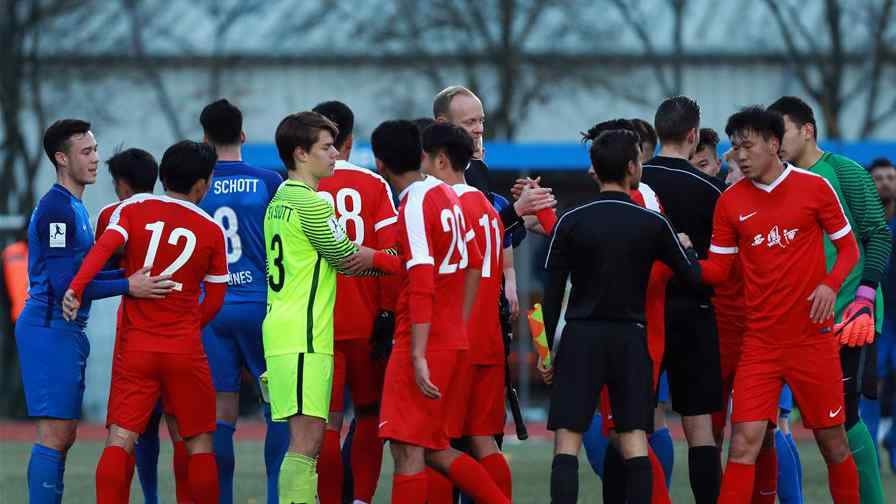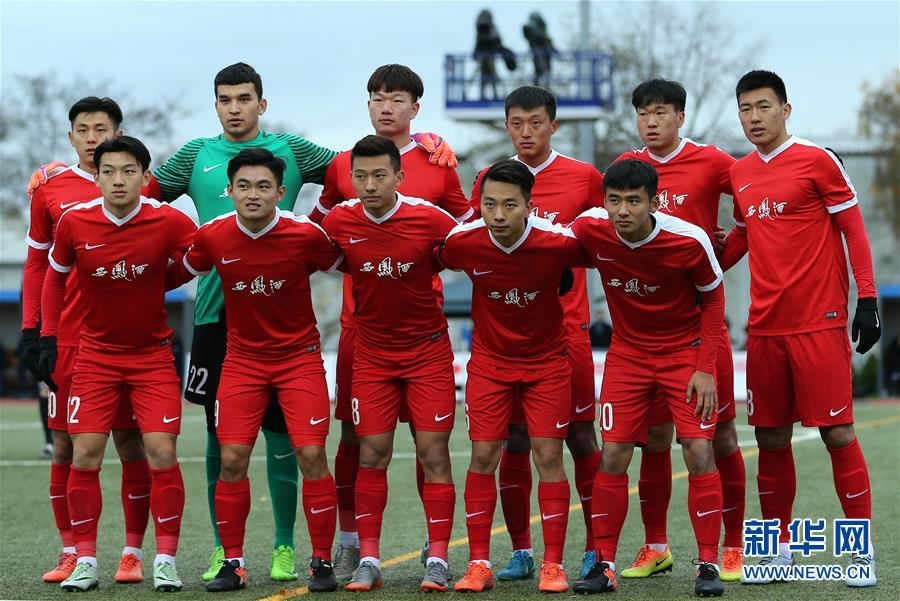
Opinions
18:10, 24-Nov-2017
Opinion: Is there a limit to freedom of speech?
Guest commentary by Dr. Summer

Since last Saturday, I’ve been following China’s U-20 Team as it started its tour in Germany. The tour is part of a soccer partnership agreement between the two countries signed last year, under which the Chinese team would play 16 friendlies against German fourth-division teams. The aim was to improve the Chinese players’ performances in football. Frankly speaking, I was concerned that the tour would be spoiled by unexpected political factors after watching the team’s first match against TSV Schott Mainz last Saturday.
During the match, six spectators put up the lion flags of a Tibetan separatist group and the Chinese players walked off the pitch and refused to play until the spectators put the flags away.

China’s U-20 Team take the group photo on November 18, 2017. /Xinhua Photo
China’s U-20 Team take the group photo on November 18, 2017. /Xinhua Photo
Ronny Zimmermann, Vice-president of the Deutscher Fussball-Bund (DFB), German soccer’s governing body, was quoted as saying that “we condemn the use of football as a deliberate provocation against our guests," but there is also “the right to freedom of expression here." He said that the DFB would speak to the Chinese delegation to hopefully avoid similar embarrassing scenes before the next match against FSV Frankfurt scheduled the coming Saturday.
However, according to the German paper “Bild," during a telephone meeting between the Chinese team and the FSV Frankfurt Club, the Chinese side demanded that no such event occur during future matches, but the German side insisted that freedom of speech must be allowed. What’s more, the club claimed that during the coming match on Saturday, about 70 people would come to the match with slogans and flags to show their support for “Tibet Independence." In response, the Chinese side said they would stop the match if that occurred.
While some Germans are criticizing the Chinese for not respecting freedom of speech, I think their judgment is based on biased reasoning.
Firstly, politics should not be mingled with sports. Political slogans and flags should not be allowed to be displayed in a stadium. If these people want to make a political statement, there are many other places and occasions to make their voices heard.
Secondly, the case involves two aspects. It’s not just a matter of protecting “freedom of speech," but also an issue of respecting a sovereign country’s territorial integrity. Tibet is a part of China, just like North-Rhine Westphalia is a part of Germany.
Thirdly, the issue has not been dealt with fairly. During the first match, when the slogans and flags were raised up, the local police did not intervene “as the demonstration was peaceful." But when the Chinese players walked off the pitch in protest, the German side urged them to show respect for “freedom of speech” and to concentrate on the game.
I remember reading about two related cases involving foreigners violating the laws in Germany. On August 5, two Chinese tourists were caught taking photos of themselves with the stiff-armed Nazi salute in front of Berlin's Reichstag building. They were detained, faced charges for “using symbols of illegal organization” and were released on bail for 500 euros. A week later, an American man was punched by a passer-by as he made the same gesture in downtown Dresden. Local police said the American was under investigation for violating Germany's laws against the display of Nazi symbols or slogans. I totally agree that these people should be punished for violating the laws in Germany, but I want to make a point by asking: If someone does the same salute before a German team in a country where the gesture is not banned by law, what will the team members feel?
Although the old saying “Do in Rome as the Romans do” still applies as a way to maintain social order within a country, we must also pay due attention to mutual respect in handling cross nation issues in today’s world of globalization.
(With a doctoral degree in communications from the China University of Communications, the author has been working in the field of international journalism for 30 years. The article reflects the author's opinion, and not necessarily the views of CGTN. )

SITEMAP
Copyright © 2018 CGTN. Beijing ICP prepared NO.16065310-3
Copyright © 2018 CGTN. Beijing ICP prepared NO.16065310-3